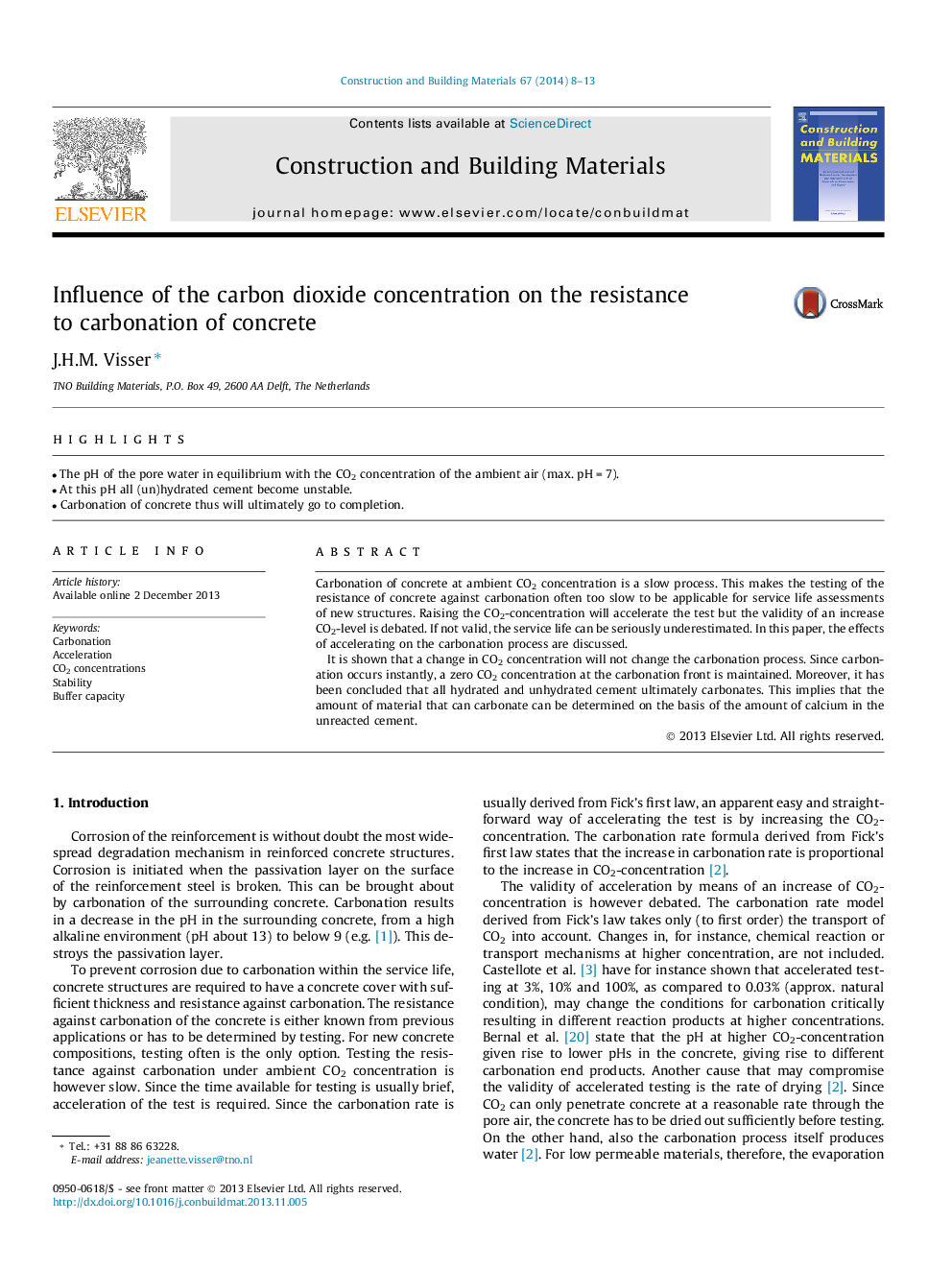| کد مقاله | کد نشریه | سال انتشار | مقاله انگلیسی | نسخه تمام متن |
|---|---|---|---|---|
| 257435 | 503589 | 2014 | 6 صفحه PDF | دانلود رایگان |
Highlight
• The pH of the pore water in equilibrium with the CO2 concentration of the ambient air (max. pH = 7).
• At this pH all (un)hydrated cement become unstable.
• Carbonation of concrete thus will ultimately go to completion.
Carbonation of concrete at ambient CO2 concentration is a slow process. This makes the testing of the resistance of concrete against carbonation often too slow to be applicable for service life assessments of new structures. Raising the CO2-concentration will accelerate the test but the validity of an increase CO2-level is debated. If not valid, the service life can be seriously underestimated. In this paper, the effects of accelerating on the carbonation process are discussed.It is shown that a change in CO2 concentration will not change the carbonation process. Since carbonation occurs instantly, a zero CO2 concentration at the carbonation front is maintained. Moreover, it has been concluded that all hydrated and unhydrated cement ultimately carbonates. This implies that the amount of material that can carbonate can be determined on the basis of the amount of calcium in the unreacted cement.
Journal: Construction and Building Materials - Volume 67, Part A, 30 September 2014, Pages 8–13
